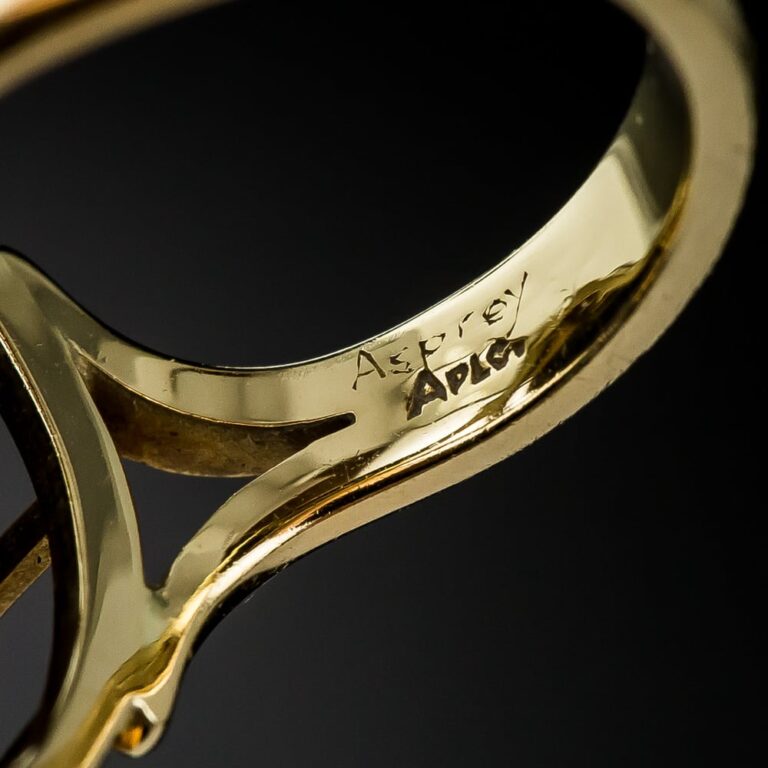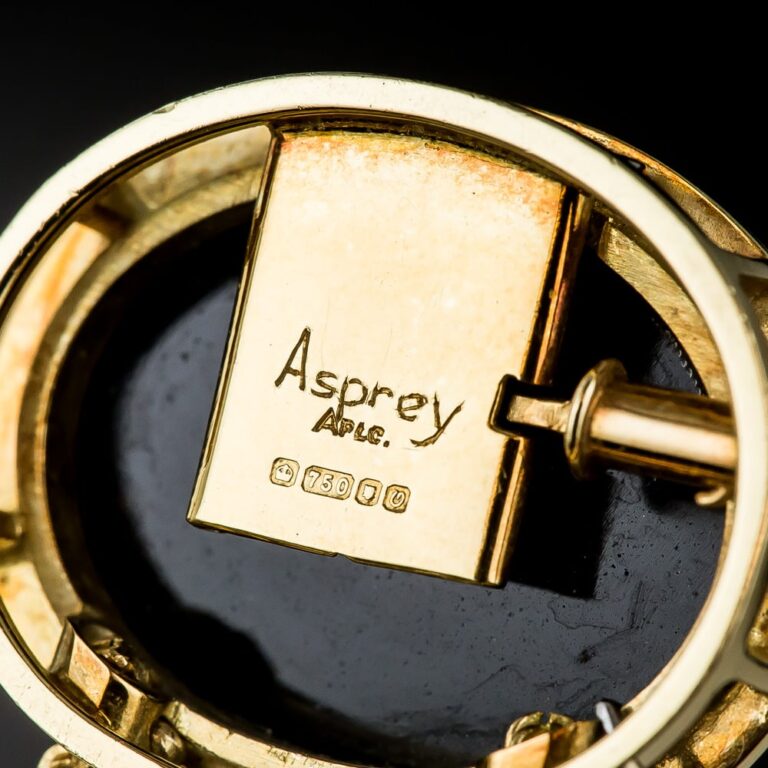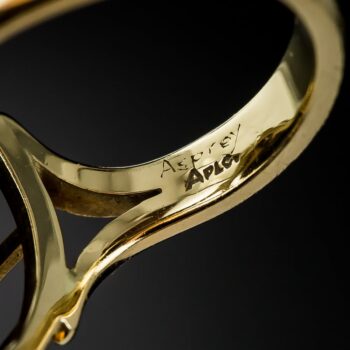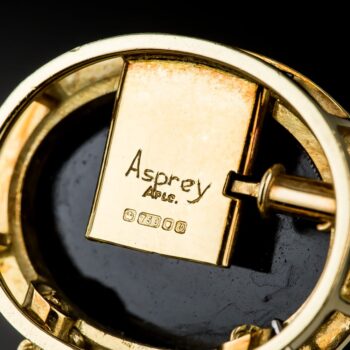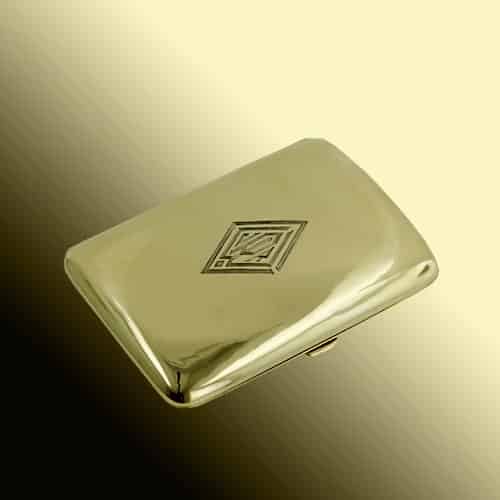
Venerable English jeweler, William Asprey established Asprey in 1781. During the previous century, his Huguenot ancestors fled religious persecution in France, eventually settling in England, where they put their traditional leatherworking, watchmaking, and metalsmithing skills to work. 1 At first, William specialized in dressing cases. In 1859, he acquired a company with a royal warrant to fabricate dressing cases for Queen Victoria. Several years later, in 1862, Asprey won its own royal warrant on the basis of its prize-winning work at London’s International Exhibition. During the twentieth century, the firm expanded its original business considerably, garnering additional royal appointments as goldsmiths, silversmiths, and jewelers. In the 1930s, the store relocated to New Bond Street. Currently, Asprey has locations in London, New York, and throughout the Middle East and Asia. Its clientele includes English and Arabian royalty as well as heads of state. The firm prides itself on its custom designs, including novelty items like collapsible gold toothbrushes.j2 It also offers luxury merchandise including clocks, watches, silver objects, china, furniture, daggers, and clothing.
Maker's Marks & Timeline
Asprey and Co.
| Country | |
|---|---|
| City | London |
| Symbol | cartouche, frame, oval, quatrefoil, triangle |
| Shape | cartouche, frame, oval, triangle |
| Era | 1903-present |
Specialties
- Jewelers
- Silversmiths
- Dressing Cases
1847
- New Bond Street Store
1851
- Great Exhibition: Gold Medal awarded by Queen Victoria
1862
- Royal Warrant from Queen Victoria
1889
- Royal Warrant from King Edward VII
1925
- Pearl Necklace commissioned by Queen Mary
1930
- Five trunks commissioned by Maharajah of Patiala
1975
- Queen’s Award to industry from Queen Elizabeth II
1998
- Merger: Asprey & Garrard
2002
- Demerger from Garrard
Currently
- Specializing in custom designs, novelties & luxury merchandise
Sources
- Traina, John. Extraordinary Jewels. New York: Double Day, 1994.

